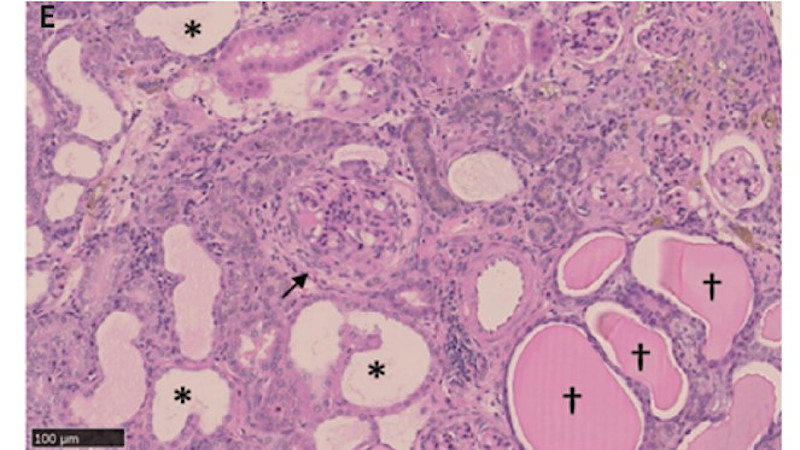Disease Mechanisms and Ageing
Group Leader(s): Dr Paul Potter
Contact: ppotter@brookes.ac.uk +44 (0)1865 488632
About us
The group’s interests lie in elucidating pathogenic pathways through in vivo and in vitro modelling, with a particular emphasis on chronic and age-related disease.
We are currently working on a novel model of nephrotic syndrome resulting from a point mutation in laminin alpha5, osteophyte formation in a model of osteoarthritis with defective collagen 1 alpha 2, and the effects of an aggrecan mutation on joint deterioration and adiposity.
We also have an interest in modifier pathways in renal disease such as Alport Syndrome and Nephrotic Syndrome.

Related courses
- Biomedical Science (BSc (Hons))
- Medical Genetics and Genomics (MSc / PGDip / PGCert)
Research impact

Dr Potter has presented at national and international meetings and recently gave the keynote talk at the UK SPINE 2021 Annual Meeting. He is also a member of the steering group for the Oxford Brookes Healthy Ageing RIKE Network. He is the widening participation co-ordinator for the Department of Biological and Medical Sciences (BMS) and leads the Biology section of the Brookes Engage programme, and has contributed to various Summer Schools.
Leadership

Dr Paul Potter
Senior Lecturer and Group Leader: Disease Mechanisms and Ageing
